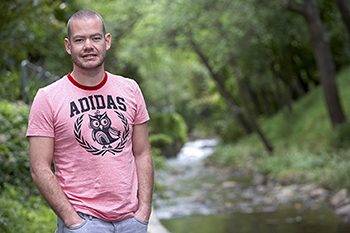
Prof Ross Tucker South Africa’s premier sports scientist
Photo: Supplied |
Considered as South Africa’s premier sports scientist, Professor Ross Tucker has been appointed to be part of an official panel of experts to assess the performance of Cricket South Africa (CSA). Tucker is a Professor of Exercise Physiology at the University of Free State (UFS) School of Medicine. On joining the UFS, his plan was to help place the University onto the global map, and to become a leading voice in the sports science landscape. His involvement in sports around the world is fulfilling his vision.
Having an enviable reputation in the world of sport worldwide, he was named in the Mail and Guardian’s list of Top 200 Influential Young South Africans, and by the Minister of Sport as one of the 100 Influential people in South African Sport in 2013.
The official panel, commissioned by CSA, is to review the performances of elite Cricket teams - primarily the Proteas, but also the U/19 and women’s teams - with the aim of addressing the challenges encountered by the teams. Alongside other members, including former Protea player, Adam Bacher, and world-class rugby player and 1995 national captain, Francois Pienaar, Prof Tucker is to evaluate what has worked and what hasn’t, in order to make recommendations, and guide strategies and tactics that will yield some World Cup successes.
On his vision for Cricket South Africa, Prof Tucker said he sees the opportunity as a chance to drive an elite, high-profile agenda, and set an example for all sports to follow. “We want to improve South African cricket, helping to chart a course for winning the next World Cup and dominating the world”, he said.